Google Gemini AI: Reshaping E-commerce Future Beyond Google’s Ecosystem
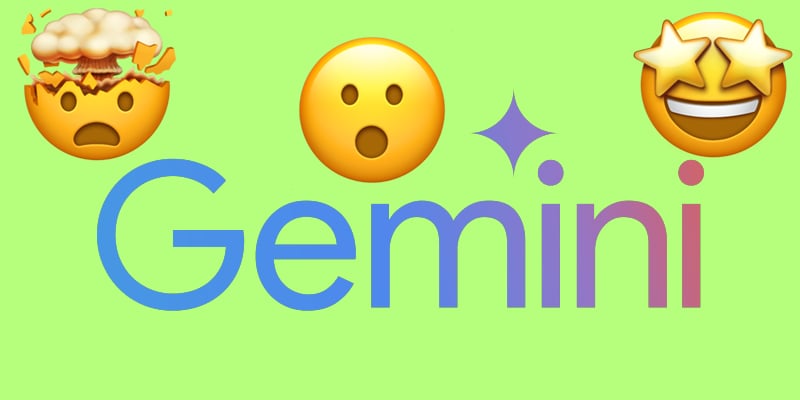
Artificial Intelligence (AI) is reshaping industries across the globe, from automating workflows to enhancing customer experiences. At the forefront of this transformation is Google Gemini AI, a cutting-edge multimodal system that processes and generates content across text, code, images, video, and audio. As Google’s latest advancement, Gemini brings unprecedented flexibility, enabling it to seamlessly integrate into a wide range of platforms beyond Google’s ecosystem.
With the capability to power complex tasks, Gemini AI is poised to revolutionize e-commerce platforms like Magento, Shopify, and Shopware. Enhancing personalization, automating product recommendations, and generating multimedia content offers retailers new ways to engage customers and streamline operations. As AI in e-commerce continues to evolve, Google Gemini AI stands as a crucial tool for businesses seeking to stay ahead in the digital marketplace.

Table of contents
What Is Google Gemini AI?
Gemini Google AI is Google’s state-of-the-art multimodal AI system designed to revolutionize how we interact with artificial intelligence. Unlike its predecessors, Gemini is capable of processing various forms of media—text, code, images, video, and audio—making it far more versatile than traditional language models. This multimodal capability allows Gemini to answer complex queries, generate images, translate text, and even analyze multimedia inputs, such as reading and interpreting the text in images.
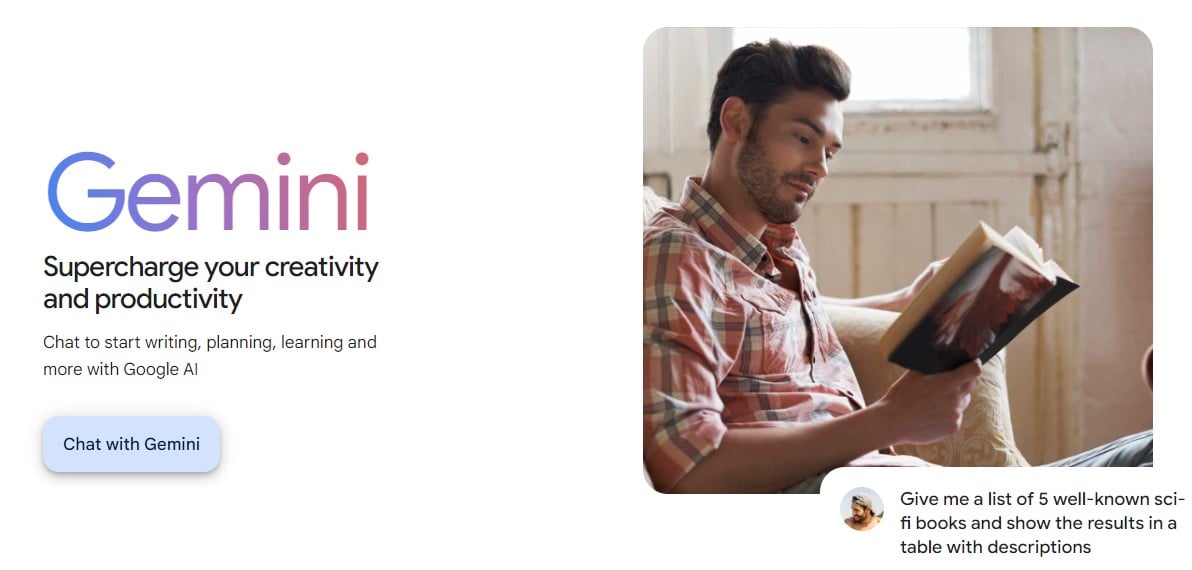
The Google Gemini AI suite comes in several models, each tailored for specific use cases:
- Gemini Ultra is the most powerful, designed for handling complex tasks requiring deep reasoning and detailed analysis.
- Gemini Pro strikes a balance between performance and speed, making it ideal for general purposes.
- Gemini Flash is a lightweight model, optimized for quick responses and efficiency, often used in real-time applications.
- Gemini Nano is geared towards mobile devices, offering on-device AI capabilities, such as voice and image recognition, particularly on Google Pixel devices.
One key feature that sets Gemini Google AI apart from other models like GPT-4 is its real-time internet access. This allows Gemini to retrieve up-to-date information directly from the web, making it more reliable for current data. Additionally, Gemini has longer context windows, enabling it to handle larger volumes of data in a single session, making it ideal for more complex and contextually rich queries.
Integrated deeply within Google’s ecosystem, Gemini enhances applications like Gmail, Google Docs, and Google Maps, streamlining tasks such as email drafting, document summarization, and location-based suggestions. This seamless integration, combined with its multimodal functionality, makes Gemini Google AI a key player in Google’s broader AI strategy. While Bard served as an early exploration of conversational AI, Gemini represents a more mature, versatile, and integrated AI solution, poised to define the next wave of artificial intelligence across industries.
Google AI: How Gemini Works
In this section, we’ll dive deeper into how Google Gemini AI works on a technical level. From its advanced architecture to its ability to process different types of data, Gemini is designed to be a versatile AI system. We’ll also explore its real-time learning capabilities, token limits, and how it scales across different devices — from mobile applications to complex enterprise tasks. Let’s break down the core elements that make Google AI Gemini a powerful tool across industries.
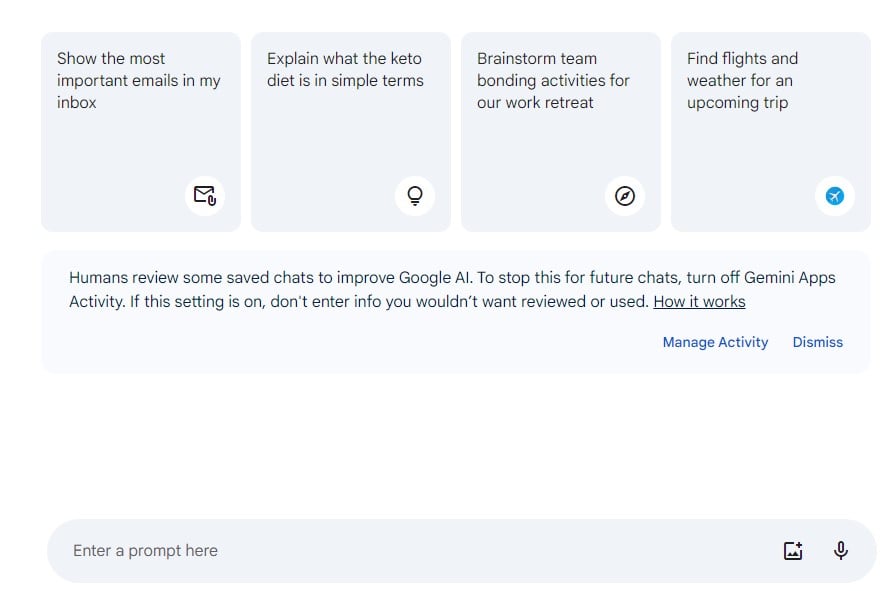
The Technical Foundation: Transformers, TPUs, and Reinforcement Learning
At the core of Google AI Gemini lies the Transformer architecture, a neural network model that revolutionized AI by improving how models understand and generate language. The Transformer allows Gemini to process vast amounts of data while maintaining coherence in its outputs. This architecture is crucial for multimodal capabilities, as it handles various types of data with remarkable efficiency.
Gemini also relies on Tensor Processing Units (TPUs), Google’s custom hardware designed to accelerate machine learning tasks. TPUs enable Gemini AI to process complex queries faster and with lower energy consumption, giving it an edge over models relying on traditional GPUs.
Another significant aspect of Gemini’s foundation is Reinforcement Learning with Human Feedback (RLHF). This technique refines the AI’s responses by incorporating human judgments into the learning process, ensuring that Gemini’s outputs are more aligned with user expectations and real-world applications.
Multimodal Capabilities: Handling Diverse Data Types
Google AI Gemini distinguishes itself with its ability to process multiple data types simultaneously. Its multimodal capabilities allow it to:
- Analyze images: Gemini can interpret the content within images, such as reading text from a photo or generating descriptive captions.
- Understand audio: From voice recognition to language translation, Gemini supports over 100 languages, offering real-time, multilingual support.
- Process video: Gemini’s video analysis allows for detailed frame-by-frame insights, making it invaluable for industries like e-commerce or content creation.
This multimodal processing not only makes Gemini more versatile but also expands its utility across different industries, from healthcare to retail, where diverse data inputs are crucial.
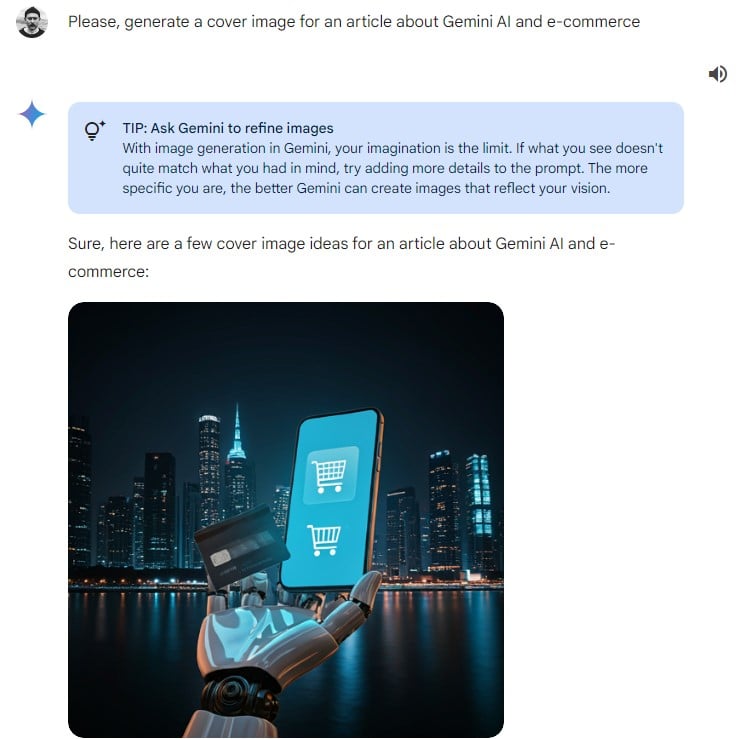
Real-Time Learning and Token Limits
One of Google AI Gemini’s standout features is its real-time learning ability. Unlike many models that are constrained by pre-trained datasets, Gemini can access live information from the web, offering more up-to-date responses to user queries. This feature makes it ideal for dynamic industries, such as e-commerce, where market trends can change rapidly.
Gemini also features a longer context window, supporting up to 2 million tokens in its Ultra version. This extended capacity allows it to handle more complex queries that involve multiple steps or large datasets, providing more accurate and cohesive outputs.
Scalability: From Mobile to Complex Applications
Gemini is built to scale across a wide range of devices and use cases. Gemini Nano is designed for mobile applications, making it possible to use advanced AI on devices like Google Pixel, providing features such as voice interaction and real-time image processing. On the other end of the spectrum, Gemini Ultra is optimized for complex, high-stakes tasks that require deep reasoning, such as coding or advanced scientific research.
This scalability makes Google AI Gemini not just a tool for casual use but also a critical component for enterprise-level tasks, offering solutions for both lightweight applications and heavy-duty processing. Let’s see how it can be implemented across major e-commerce platforms.
Implementing Google Gemini AI Across Major E-Commerce Platforms
Integrating Google AI Gemini into e-commerce platforms like Magento, Shopify, and Shopware offers businesses new opportunities to optimize operations and enhance customer experiences. By leveraging Gemini’s multimodal capabilities, retailers can automate product recommendations, personalize marketing, and streamline backend processes. In this section, we’ll explore how Google Gemini AI can be effectively implemented across these platforms, highlighting key use cases and integration strategies to boost e-commerce performance.
Gemini AI in Magento
Integrating Gemini AI by Google into Magento via third-party platforms, such as Appy Pie, is currently more limited than what is theoretically possible. While full-scale personalized recommendations and advanced multilingual support may not be fully operational yet, Appy Pie provides several realistic opportunities for enhancing your Magento store with AI-driven tools.
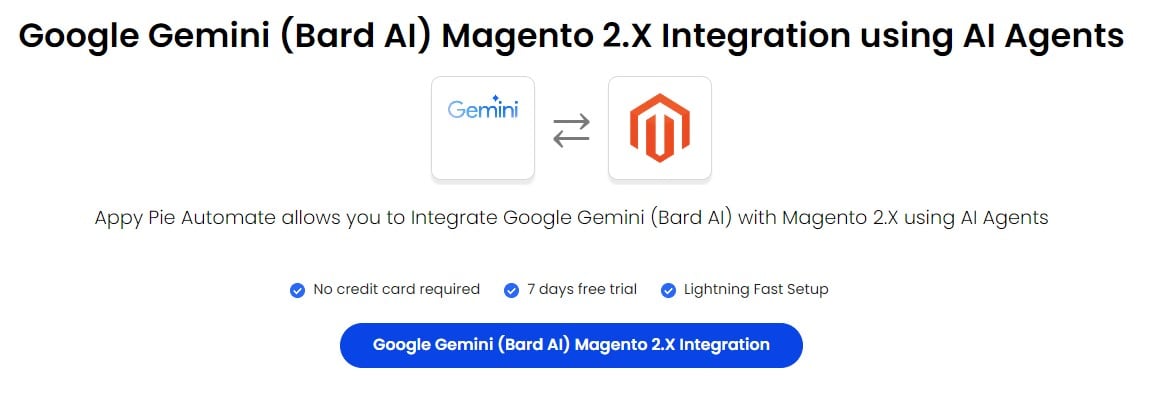
- Automated Task Management. Through Appy Pie, you can integrate Gemini AI with Magento to streamline basic operational tasks. This includes automating routine processes such as inventory updates, managing orders, and scheduling product promotions. Though this is a more straightforward implementation, it helps free up time for more strategic tasks while ensuring smooth backend operations.
- Enhanced Customer Interaction. Currently, real-time chatbots powered by Google Gemini AI can be integrated with Magento stores using Appy Pie. These chatbots can handle basic customer queries—such as product availability, order status, or returns. Although the chatbot’s capabilities are not yet advanced enough to handle multimodal input like images, it still offers useful text-based customer support, improving engagement without requiring a full-time support team.
- Simple Content Automation. While more complex content generation (like automated blogs or highly detailed product descriptions) is not fully implemented, Google AI Gemini can assist with basic content automation. By leveraging the integration via Appy Pie, store owners can create quick, automated responses to frequently asked questions or help generate simple, consistent product descriptions, enhancing content without manual effort.
- Localized Language Support. Gemini AI can assist with basic translation services for global expansion, but this functionality remains limited to translating simple, static text elements. Appy Pie enables Gemini to handle language localization for key pages like product titles and descriptions, allowing for a basic multilingual presence. However, dynamic, context-aware translations for large catalogs are not fully automated at this stage.
While Gemini AI is not yet delivering its full potential for Magento through current integrations, tools like Appy Pie offer practical ways to automate and improve basic operations.
Gemini AI in Shopify
Leveraging Gemini Google AI in Shopify is becoming increasingly practical through third-party platforms like n8n, which facilitate the integration of AI tools for streamlining e-commerce processes. While some high-level capabilities like advanced multimodal functions are still emerging, the current realistic implementations provide valuable opportunities for Shopify merchants to automate tasks and improve operational efficiency.
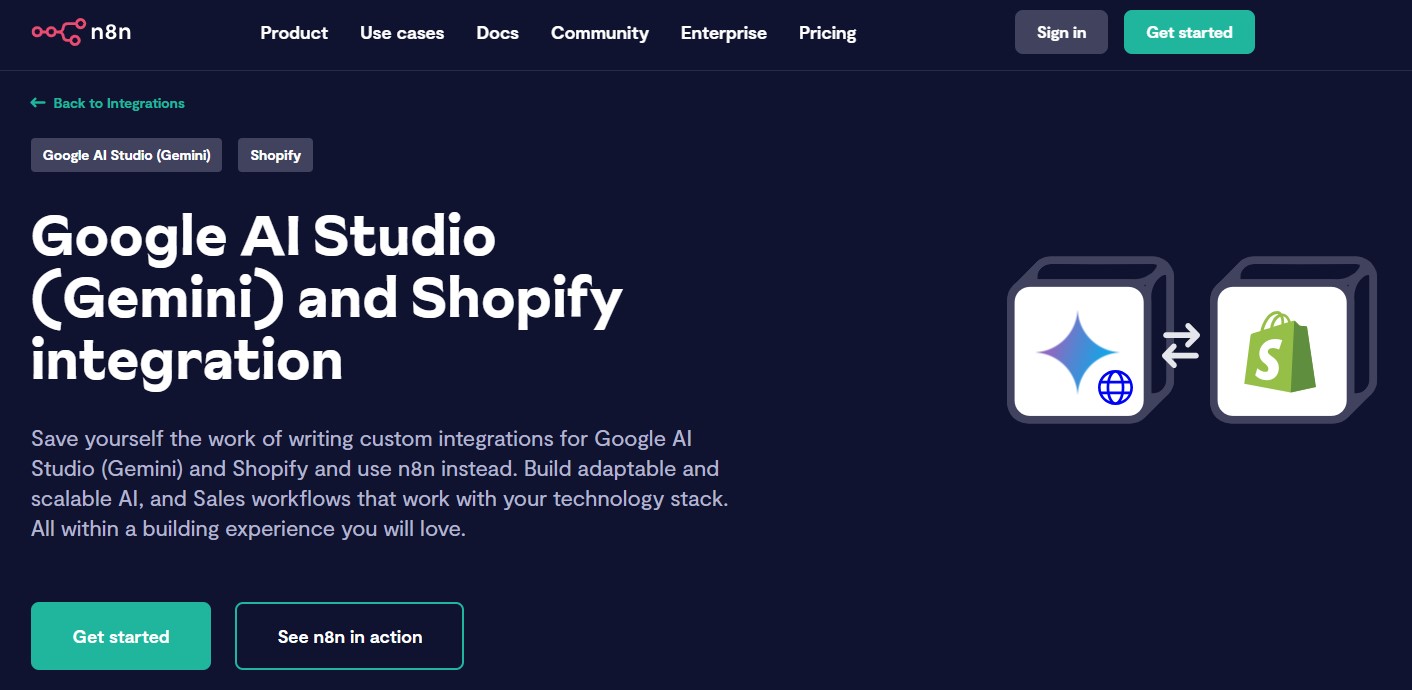
- Automating Marketing Campaigns. With Gemini Google AI integration via n8n, Shopify merchants can automate the generation of custom ad copy for marketing campaigns. Although complex multimedia campaign generation is not fully automated yet, Gemini AI can create engaging text-based content for advertisements, such as product promotions or social media posts. This automation saves time and ensures that marketing efforts are consistent and tailored to specific products, allowing businesses to focus on campaign strategies rather than repetitive tasks. Merchants can also leverage Gemini AI to generate product images for ads, though this is more basic compared to high-end creative tools.
- Predictive Inventory Management. Shopify merchants can enhance their inventory management by using predictive AI capabilities powered by Gemini Google AI. While the system might not yet handle extremely complex, real-time predictions across vast datasets, n8n integration allows for more accurate forecasting based on customer behaviors. By analyzing sales patterns, past purchases, and customer preferences, Gemini can help predict stock needs and prevent overstock or stockouts, optimizing the supply chain. This automated process leads to better resource allocation and a more responsive inventory system.
- AI-Driven Real-Time Voice and Chat Interfaces. Through Gemini AI Google integration, Shopify stores can implement real-time chatbots and voice interfaces to enhance customer interaction. While n8n makes it possible to connect Gemini with Shopify, the functionality is currently more focused on text-based interactions. AI chatbots can handle FAQs, assist with order tracking, and respond to product inquiries in real time, improving customer service without the need for dedicated support staff. Though voice interaction is not yet fully integrated in a highly conversational manner, it provides a foundation for future expansion.
- Streamlining SEO Optimization. Gemini AI’s text generation capabilities can also be applied to streamline SEO for Shopify stores. Through n8n’s integration, merchants can automate the creation of product metadata, such as meta descriptions, titles, and tags. While the AI may not produce highly sophisticated, nuanced SEO content yet, it can generate basic, SEO-friendly product information that improves visibility in search engines. This automation ensures that product listings are optimized for search, helping stores rank higher and attract more organic traffic.
While Gemini Google AI integration with Shopify through n8n is still developing, it provides realistic and valuable tools for automating and enhancing various tasks.
Gemini AI in Shopware
Currently, there are no direct integrations between Google Gemini AI and Shopware. However, businesses can still utilize Gemini’s capabilities to enhance their daily operations and improve customer experience. By using Gemini AI in conjunction with other tools, Shopware merchants can optimize key areas like search functionality, multilingual support, content creation, and customer service.
- Managing Multilingual Storefronts. Although Gemini AI isn’t natively integrated into Shopware, it can be indirectly applied to manage multilingual storefronts. Google Gemini AI’s translation features allow merchants to quickly translate product descriptions, customer reviews, and marketing content into multiple languages. By using Google’s translation capabilities in combination with Shopware’s backend, businesses can offer seamless multilingual support, helping them reach international customers without the need for manual translations.
- Visual Content Creation for Product Marketing. Gemini AI’s image and video generation capabilities can be used to create engaging visual content for Shopware stores. Though Shopware lacks a direct integration with Gemini AI, businesses can generate marketing visuals and videos using Gemini through external tools and manually incorporate them into their Shopware storefronts. This approach allows merchants to create custom product visuals, banners, and promotional materials with minimal effort, ensuring a visually appealing online store that attracts more customers.
- Automated Customer Support. While Shopware doesn’t currently support direct Gemini AI integration for customer support, merchants can use Gemini’s AI-driven voice and text capabilities to enhance customer service indirectly. By connecting Gemini AI to external customer support platforms, businesses can automate common customer queries, assist with order tracking, and manage returns more efficiently. This setup offers a basic level of automated customer support, reducing the workload on human agents and ensuring faster response times for customers.
Although Google Gemini AI isn’t directly integrated with Shopware, it can still be leveraged indirectly to improve essential business functions.
The Future of E-commerce with Google AI Gemini
As Google AI Gemini evolves, its impact on the e-commerce industry is set to be transformative. With its ability to process multimodal data and handle real-time information, Gemini AI will push the boundaries of personalization, automation, and customer experience in ways that were previously unimaginable. Its potential to disrupt and innovate within e-commerce extends far beyond Google’s own ecosystem, opening doors for merchants on platforms like Magento, Shopify, and Shopware to take advantage of cutting-edge AI features.
Hyper-Personalized Shopping Experiences
The future of e-commerce is shifting towards hyper-personalization, where every interaction a customer has with an online store is tailored specifically to their preferences and behaviors. Google Gemini AI is poised to be a key driver of this change, leveraging its ability to process and analyze large volumes of multimodal data, including text, images, and customer behaviors. This allows Gemini to generate personalized product recommendations, adjust pricing dynamically, and create individualized marketing content that feels more relevant to each shopper.
For example, Netflix has long been a leader in personalization, using AI to recommend shows and movies based on user history. E-commerce platforms are expected to adopt similar strategies, and tools like Gemini AI can take these efforts to the next level. According to Gartner, by 2025, 80% of marketers will abandon traditional personalization tactics for AI-driven approaches that offer real-time, contextual insights .
By transforming shopping into a curated experience, Gemini AI can significantly improve customer satisfaction, leading to higher conversion rates and customer retention.
For instance, Amazon’s recommendation engine, which drives a large portion of its revenue, is an early example of how personalization can directly impact sales. Google Gemini AI will enable e-commerce stores of all sizes to offer these kinds of experiences, democratizing access to sophisticated AI tools.
Advanced Automation and Operational Efficiency
In addition to enhancing personalization, AI-driven automation will streamline many back-office functions, allowing e-commerce businesses to run more efficiently. With Google AI Gemini, tasks like inventory management, marketing campaign automation, and customer service can be handled more effectively through predictive analysis.
For example, Gemini can analyze historical sales data and customer trends to predict inventory needs, helping retailers avoid stockouts or overstocking.
Walmart is already using AI to optimize its supply chain, using predictive algorithms to manage inventory across its stores. Similarly, Gemini AI’s real-time analysis of customer behaviors can help businesses set dynamic pricing strategies that adjust based on demand and market trends. According to McKinsey, businesses that implement AI-driven supply chain improvements see cost reductions of 15-20%.
As AI technology continues to advance, merchants will benefit from increased operational agility, reduced manual workload, and faster response times to customer needs. This allows businesses to stay competitive in a fast-paced market while reducing costs and improving customer satisfaction.
Revolutionizing Customer Interaction
One of the most exciting potential impacts of Google Gemini AI is its ability to revolutionize customer interaction through multimodal capabilities. Shortly, e-commerce platforms will allow customers to engage with AI-powered chatbots that understand voice commands, images, and videos. This could make shopping much more intuitive. For example, a customer could upload a picture of an item they want, and the AI could instantly find matching products or even provide information on the item, such as pricing and availability.
Currently, Sephora uses chatbots to provide personalized beauty advice based on user preferences and images of their skin tone. Google Gemini AI could enhance such interactions by making them even more context-aware and capable of understanding more complex requests. By offering real-time, multimodal support, businesses can reduce the barriers to customer engagement, making the shopping process more seamless and personalized.

The Power of Multilingual and Global Commerce
As e-commerce becomes increasingly global, the ability to communicate across languages becomes crucial. Google AI Gemini offers advanced multilingual capabilities, allowing businesses to automatically translate product descriptions, customer reviews, and marketing content into multiple languages with contextually accurate translations. This removes the need for manual translation services, enabling businesses to scale globally while maintaining a consistent and localized customer experience.
For example, companies like Alibaba rely heavily on automated translation tools to support their cross-border sales. However, these translations are not always precise. Both big and small businesses can now adopt similar technologies with Gemini AI increasing the quality of translations.

By breaking down language barriers, Google Gemini AI empowers businesses of all sizes to reach international markets more easily, making global commerce more accessible and efficient.
Final Words: The AI-Powered Future Beyond Google’s Ecosystem
The ripple effect of Google AI Gemini will extend far beyond Google’s native platforms. By integrating with third-party tools and e-commerce platforms like Shopify, Magento, and Shopware, Gemini AI will empower businesses to adopt AI-driven innovations without being locked into Google’s ecosystem. The future of e-commerce will likely see more open integrations, allowing businesses to adopt Gemini AI’s features to improve everything from supply chain management to customer relationship management (CRM) systems, regardless of the platform they use.
Some extension vendors are already exploring the market for products that could integrate Google Gemini AI with e-commerce platforms. For instance, Amasty — a well-known Magento extension provider — previously created a page dedicated to a potential Google Bard AI Content Generator extension. While the extension never materialized, it represented an early effort to gauge the demand for AI-driven tools in e-commerce.
This initial exploration indicates growing interest from vendors in creating solutions that could harness the power of Google AI for tasks such as automated content generation, personalization, and more. Although Bard was the focus at the time, it set the stage for future innovations, potentially leading to the development of tools tailored to Google Gemini AI.
So, Google Gemini AI has the potential to fundamentally reshape the future of e-commerce by driving personalization, automating key functions, and creating more intuitive customer interactions. As AI continues to evolve, its role in global commerce will only expand, leading to an era of smarter, faster, and more efficient online shopping experiences.









